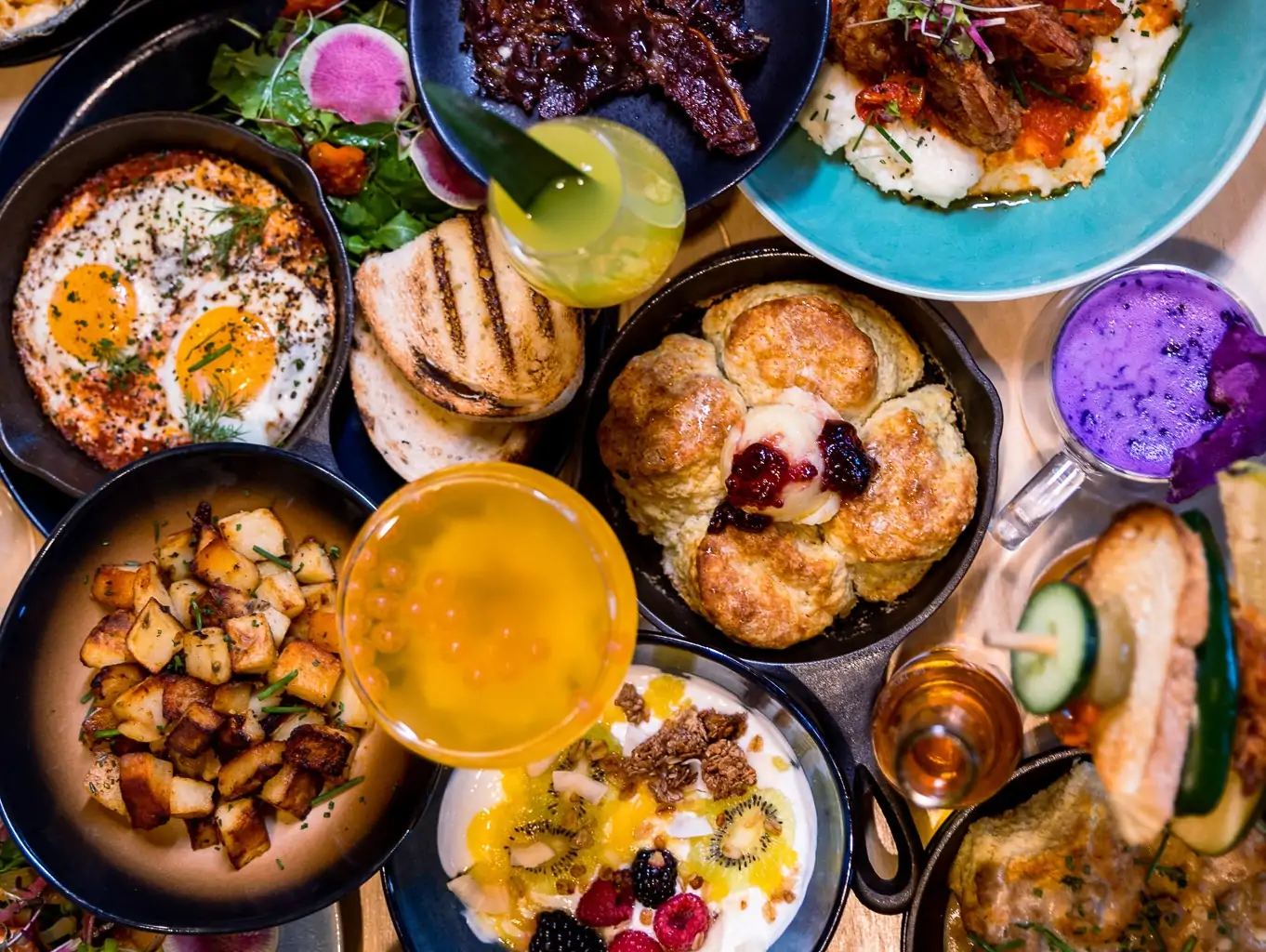OpenTable’s new weekly webinar series, In it Together, tackles key topics facing the industry during the COVID-19 crisis. What does hospitality look like in a time of emergency? How can we support our communities today, both financially and emotionally? Hosted by our COO Andrea Johnston, the platform brings together restaurant leaders and experts to foster conversation and share advice during uncertain times. Register for free for upcoming webinars featuring Kwame Onwuachi, Kevin Boehm, Elizabeth Blau, and many more.
The coronavirus pandemic has forged a new reality for the restaurant industry. Storefronts across the country are shuttered, leaving dining rooms empty and hospitality professionals unemployed. The same people who have long served their communities now find themselves in need of assistance – and the industry is stepping up to help.
In this week’s In it Together discussion, chefs Edward Lee and Jessica Koslow shared their experiences supporting the restaurant employee community during the crisis. Lee, the chef/owner of Louisville’s 610 Magnolia, MilkWood, and Whiskey Dry, closed his restaurants in mid-March, furloughing 90 members of his staff and laying off thousands. He saw the food in his walk-ins and received donations from a local hotel chain, and a picture came together. In partnership with the LEE Initiative, an organization that aims to bring equality to the restaurant industry, the Restaurant Workers Relief Program was born.
“I thought we should do something to help,” Lee said. “We could use our restaurant as a relief kitchen to feed not only our staff, but everyone in the restaurant business.”
Over on the west coast, Nancy Silverton had recently launched the Los Angeles branch of the program at Mozza when she tested positive for COVID-19. The initiative needed to move. Koslow had closed her two restaurants, Sqirl and Onda, and was working on relief efforts of her own, so she quickly offered to host.
“I took what I had started and applied it to the LEE Initiative because they had a bigger foundation,” said Koslow. “Open-source information in how to do this in your own city – through the LEE Initiative or not – will help empower restaurants to be there for the community.”
Enlist partners for help
For Lee, the program gained momentum when Makers Mark signed on as a corporate partner, offering financial resources for him to partner with chefs across the country to feed people. Similarly, Koslow reached out to companies like Imperfect Produce, which reduces food waste by selling ingredients that don’t make it into grocery stores at reduced prices.
“We tell people, whatever city you’re in, there’s a food bank,” said Lee. “There’s a company with money willing to give locally. Reach out and find ways you can get food donations. When you start something and put it out there, kindness is rewarded – people come out of the woodworks and start to give”
Let chefs be experts in their own communities
Although the Restaurant Workers Relief Program now operates nationwide, Lee is quick to say that the initiative has 20 partners, not 20 relief kitchens. That’s because there’s no one-size-fits-all solution – chefs are best suited to navigate the unique needs of their local communities.
Practice new safety protocols
Running a relief kitchen has given Koslow the opportunity to consider how a restaurant reopening might look, because she has to follow similar safety measures now. Her cooks exist in their own “hub and bubble,” never engaging with anyone who comes to pick up food. Volunteers wear masks and gloves at all times. “The safeguards we’ll come back with will be stronger and stranger,” she said.
Find inspiration in others
Koslow has been “overwhelmed” by the warmth and generosity of her L.A. community during the pandemic. For example, one of her sous chefs moved from New York to work at a hotel restaurant and lived in the hotel. When he was furloughed, his housing benefits disappeared, and now he’s living out of his car. He still volunteered his time to come every Sunday and help the LEE Initiative.
Others bring masks and homemade cookies to the restaurant. “The ways people are giving back are really emotional to me,” she said.
Stay in touch with staff and guests
Koslow sends out regular updates on the world of Sqirl, which go out to her entire team. “I try to keep people updated and also be honest about what the future holds,” she said. Because she runs the social media accounts for Onda and Sqirl, she also receives messages from diners who write to say how much they miss the restaurants. “This time has really given us appreciation for our other family – the restaurant community and people who fill our dining rooms.”
Lee recently found a bittersweet way to mark one of Louisville’s biggest celebrations with guests. He offered a Kentucky Derby meal to go, and when regulars came to pick up their orders, he handed them out in a hat and Derby outfit. “I got to talk to regulars I hadn’t seen in months,” he said.
Consider the whole restaurant supply chain
Lee and Koslow are currently working on phase two of the program, which aims to help small farmers who are hurting due to slow (or nonexistent) restaurant sales. Over the next year, the LEE Initiative will raise funds and spend more than $1 million on farmers across America.
“It’s important to support farmers who have grown produce for the season based on what they could sell to restaurants,” said Koslow. “The LEE Initiative has helped to get produce from farmers in our doors and out to the community. It’s rewarding to be able to pay them.”
Be patient and prepare for the future
“The harsh reality is that no matter how much we help restaurant workers, if owners go out of business, there are no jobs,” said Lee. “It’s really about trying to stabilize the whole industry right now so we have a foundation to land on when we reopen.”
Without clear guidelines for reopening, and without governmental support for essential equipment and processes, consumers have little confidence in restaurants’ ability to operate safely. Lee advised waiting a few months to reopen until the public feels at ease and businesses can truly make a splash. “If there is one misstep, if there’s an outbreak, that’s going to reflect on our entire industry. I urge restaurants that open now to do so carefully and think about the community at large.”
Also, talk to others in the industry to learn how they are shifting practices and products. “It’s thinking about how our industry is maneuvering and what that means to you,” said Koslow. “A conversation can help broaden your perspective about what you’re doing in your own ecosystem.”
Advocate on restaurants’ behalf
What else can people do to support the industry? Drive to a restaurant you love and pick up takeout. Donate or volunteer with food banks and charities. Call local politicians and tell them what restaurants mean to you. “If the general public says we need to save independent restaurants because they mean so much to us as a culture and community, it shows that this stuff matters,” said Lee. Ask your staff, guests, friends, and family to get involved now – everyone has the power to help.




